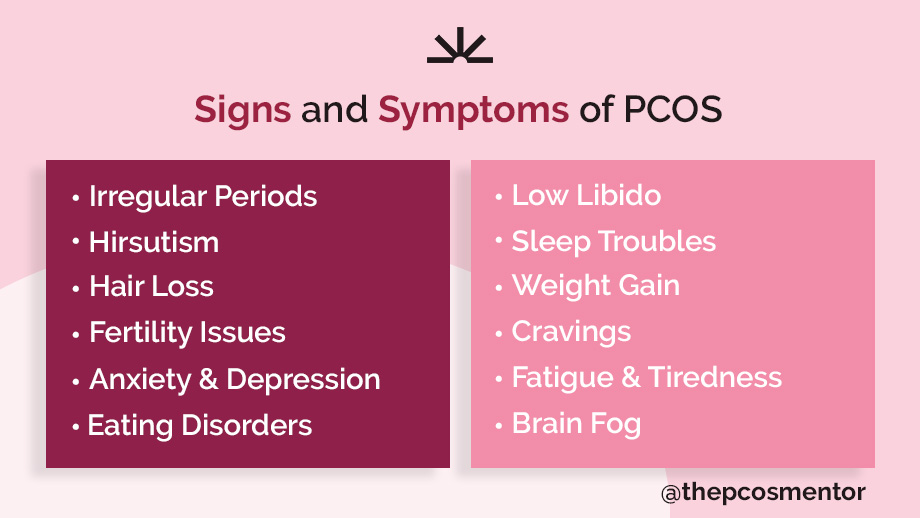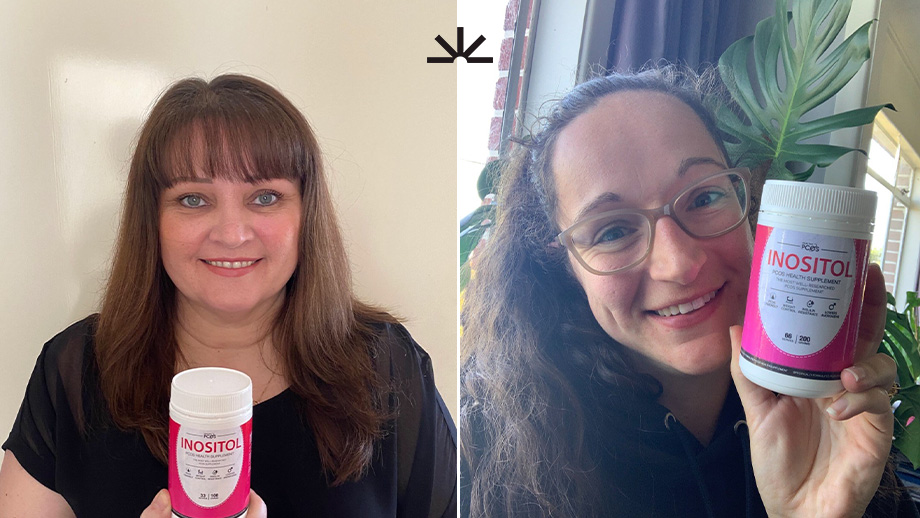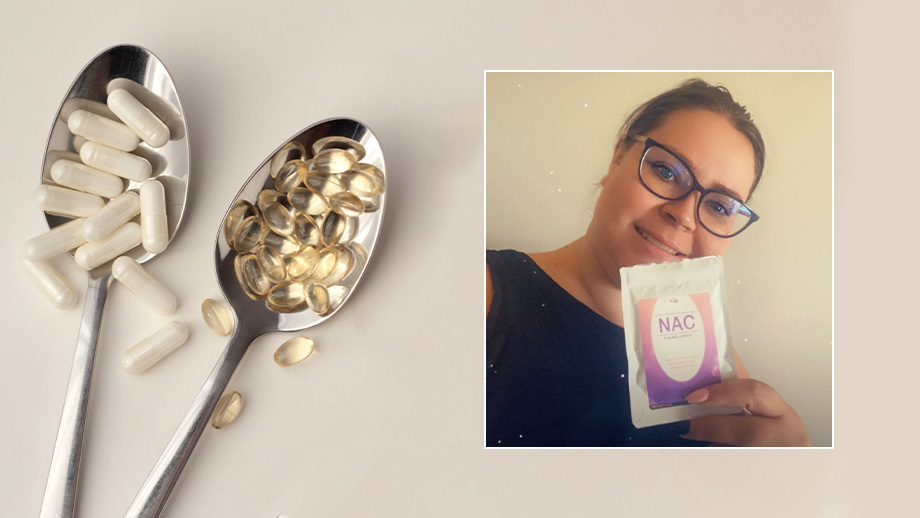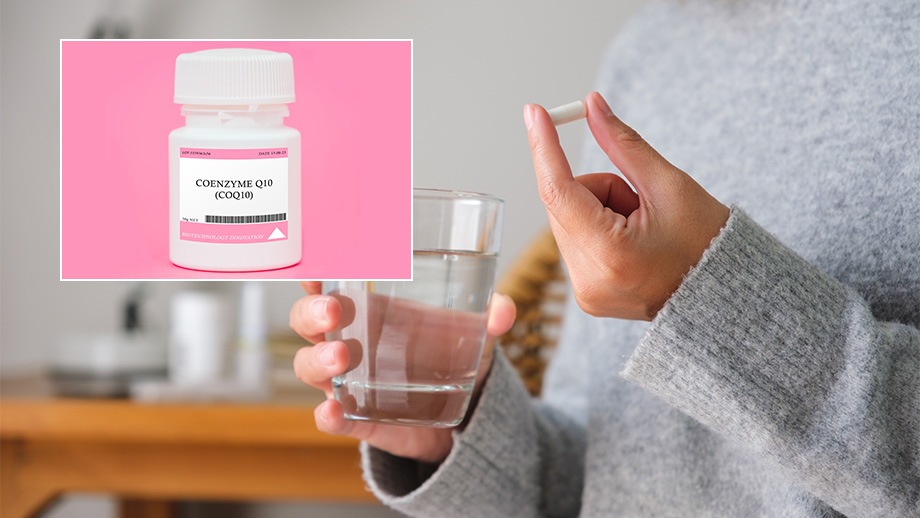You may come across inositol when looking for treatment options for your PCOS symptoms. But what is it, and does it work for PCOS? We’ll get into the nitty gritty of this supplement and the science behind it.
Finding the right supplements and treatments can improve your PCOS and make this condition easier to deal with. Let’s learn more.
What Is PCOS?
Polycystic Ovarian Syndrome is a complex metabolic disorder affecting up to 18% of women worldwide. The main issues come down to imbalances in your hormones that affect your whole endocrine system, especially reproductive health.
Common symptoms include irregular, heavy, or missing periods, acne, hair loss, facial hair growth, abdominal weight gain, insulin resistance, fatigue, and many more.
Every woman has different symptoms. While polycystic ovaries are in the name, not everyone with PCOS will have this. Because of the variability of it, finding ways to manage symptoms and improve your health can be challenging.
Additionally, due to the changing nature of your hormones, at some periods, you may struggle with certain symptoms and, at other times, with something else.

PCOS Signs & Symptoms
What Is Inositol?
Inositol is a type of sugar, also known as vitamin B8, found in the brain and other tissues and through your diet. You can find it in many foods, such as beans, fruits, nuts, and grains.
It has nine forms; the most common ones include Myo-inositol and D-chiro inositol. The body can also produce D-chiro inositol by breaking down Myo-inositol. It also has the same molecular structure as glucose.
It participates in the cell signalling processes of many hormones, such as insulin, and other metabolic functions. Additionally, due to the activity in the brain, it can help treat neurological disorders such as anxiety and depression, according to a study.
How Does Inositol Work?
Inositol signals the hormonal functions of insulin and follicle-stimulating hormone (FSH). Problems in this signaling pathway can impair insulin signaling and lead to insulin resistance.
Insulin deals with glucose transport — or how sugar gets into the cells — and the ability to trap the sugar in the cells for energy. But inositol has an activating effect on these insulin pathways.
Additionally, the ovary requires a high amount of Myo-inositol to ensure an oocyte matures into a healthy egg during ovulation.
Insulin targets adipose tissue (body fat), liver, and skeletal muscle and requires more D-chiro inositol to remain in balance (homeostasis). So a lack of sufficient Myo-inositol means these organs don’t get enough D-chiro, which then promotes insulin resistance.
Additionally, high insulin throws off the ratio between FSH and luteinizing hormone (LH), which prevents a follicle from maturing into an egg. And elevated levels also cause increased androgen production. And in a vicious cycle, high androgens lead to more insulin resistance and impede ovulation.
Researchers believe this happens due to the inositol pathways, which signal and sensitize the hormone. So what does all this mean for PCOS?
What Does Inositol Do for PCOS?
Insulin resistance throws off inositol ratios, which then lead to excess androgens, thus lowering the efficiency of FSH. Follicle-stimulating hormone jump starts ovulation.
In an article published by the National Library of Medicine on inositol and PCOS, “It is suggested that the inositols MI [Myo-inositol] and DCI [D-chiro inositol] can reduce insulin resistance, improve ovarian function, and reduce androgen levels in women with PCOS.”
Additionally, it can improve blood pressure, cholesterol, ovulation, egg quality, pregnancy, and delivery rates. Many doctors find it helpful for fertility, especially for women with PCOS who have insulin resistance.
Because it can help lower androgens and insulin resistance, it can help with PCOS symptoms such as acne, hair growth, cravings, and fatigue.
So inositols have many important functions in the body and can significantly help women with PCOS achieve their health goals.

Inositol Research Findings
Who Is Inositol Best for, and Who Shouldn’t Take It?
Inositol is best for women with PCOS, insulin resistance, who want to get pregnant, or who don’t ovulate regularly.
Those with type 2 diabetes who take diabetes medication should talk with a doctor before use. The combination may make blood sugar levels too low, which is also unsafe.
However, inositol is safe to use with metformin and has even led to improved fertility rates among women with PCOS. Always talk with your doctor first if you have concerns.
What Are the Side Effects of Inositol?
Inositol has relatively few side effects but may cause stomach upset, diarrhea, gas, or nausea, though rare.
Some may also experience dizziness or headache if taking more than 12 grams daily. If you experience these symptoms, consider lowering your dose and talking to your doctor.
When to Take Inositol?
If you choose to supplement with inositol, you can take it in the morning, right before breakfast, or before any meal. However, you can take it any time of day. If you find it causes you stomach upset, make sure to take it with food.
What Dosage of Inositol Should I Take Daily?
The dosage varies, but most doctors agree that 3 to 6 grams daily is the most beneficial. However, some studies say you can take no more than 12 grams daily. Depending on your goals, you can also combine inositol with folic acid or metformin.
Inositol Versus Metformin for PCOS

Metformin Vs. Inositol For PCOS
Doctors often prescribe metformin as a PCOS and insulin resistance treatment. It helps sensitize cells to insulin and lower blood sugar levels. However, metformin also causes many gastrointestinal side effects, such as nausea, diarrhea, and stomach pain, among others.
One meta-analysis on the effect of inositol versus metformin included 1,088 women, and another had 1,691 women participants. Both studies confirmed that Myo-inositol worked just as well as metformin for treating PCOS and insulin resistance. It had the same effect on BMI, fasting blood sugar, LH/FSH ratio, and fasting insulin.
Some studies even point to inositol having better results than metformin. Additionally, taking inositol with folic acid can further improve the supplement’s efficacy.
However, as Myo-inositol does not have significant side effects, researchers believe this is a more suitable treatment option for women with PCOS.
Where Can I Get Inositol?
Many places sell inositol supplements. You can get them in the form of powder or capsules. At Health & Balance Vitamins, you can purchase a powder form to mix into any drink. It naturally has a very mild sweet taste. But if you don’t like it in plain water, you can mix it into any flavoured drink.

H&B Vitamins / Inositol Supplement Reviews
How Long Before I See Results With Inositol For PCOS?
Supplementing with inositol can have great results, but you must take it regularly. Additionally, everyone will see different outcomes.
Generally, you should take it for at least three months before you can start to see or feel improvements. However, it can also take six months or more. But other people may notice results much earlier.
Remember that supplementation comes with many factors, such as diet, exercise, other health conditions, and other supplements. But the body takes time to adapt, so give it the space and time it needs to start working.
Is Inositol Right for Your PCOS?
While inositol may seem like a magic cure-all for your PCOS, it won’t work for everyone. Everybody has a different body composition. For some, it may work great, while others may not notice any changes. But the same applies to any supplement, medication, or lifestyle change.
But the research proves that this natural sugar compound can improve blood sugar, insulin resistance, triglycerides, energy, ovulation and fertility, testosterone (hair growth and acne), and blood pressure.
You can decide if supplementing with inositol will work for you and your PCOS symptoms. Are you going to try it?












